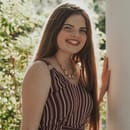If you’ve ever been to a professional development course at Florida State, chances are someone has told you to create a LinkedIn profile. But why? Where do you even start?
1. Employers often Google search your name.
What happens when you type your name into the Google search bar? Does anything relevant to your professional life appear? Maybe an article that your high school wrote about you or a link to your Facebook? If not, then you definitely need a LinkedIn. A LinkedIn offers you the chance to create a self-curated platform for you to present to your potential employers.
2. Sometimes employers want to see more than your typical resume and cover letter.
A resume and cover letter are vital to the hiring process, but sometimes a LinkedIn can be too! Many hiring companies will search your name on LinkedIn to review your previous activity. For example, an employer might want to see what kinds of posts you are liking on LinkedIn. Do you like posts from the company you previously worked at? Do you support and congratulate your team members? This type of behavior can indicate company loyalty and excitement to work.
3. It allows you an opportunity to showcase skills and achievements that might not fit on your one-page resume.
The recommended length of a resume is one page and the recommended length of a cover letter is two or three paragraphs. So you might not be able to show off everything that makes you a great professional candidate. You might not be able to format your resume to include special skills and licenses like CPR certification, Microsoft Excel courses or leadership training. Another great way to up your LinkedIn game is to add specific college courses that interested you. Did you take a Computer Fluency course that inspired you to start learning code? Did your Florida State Experience course change your perspective on the university? Include them on your profile! This type of engagement on your LinkedIn profile can give your employer a better look into your life without overwhelming your resume.
4. It helps you keep track of your professional connections.
Sometimes, the industry can seem overwhelming, but knowing who you might be able to reach out to for guidance is a fortunate thing. Mentorships in career development can be fundamental to your understanding of the industry you hope to work in.
5. LinkedIn can actually grow your resume.

LinkedIn offers learning courses designed to boost your resume’s skillsets. Have you ever wished you were just a little more proficient in Microsoft Excel or that you understood graphic design software? LinkedIn Learning offers thousands of personal and professional development courses for you to browse. Even better, for every badge or certification, you earn it will automatically appear on your LinkedIn profile. Effectively, keeping your resume up to date and looking better than ever before. Another cool fact about LinkedIn Learning is that you can also link it to your Florida State University Academic Portal. This allows the Career Center or other programs you are involved with to assign you recommended courses for your desired work field.
For more information on developing a LinkedIn profile, check out the resources at the Florida State University’s Career Center, NOLE Central and other relevant platforms.
Want to see more HCFSU? Be sure to like us on Facebook and follow us on Instagram, Twitter, TikTok, Youtube and Pinterest!




